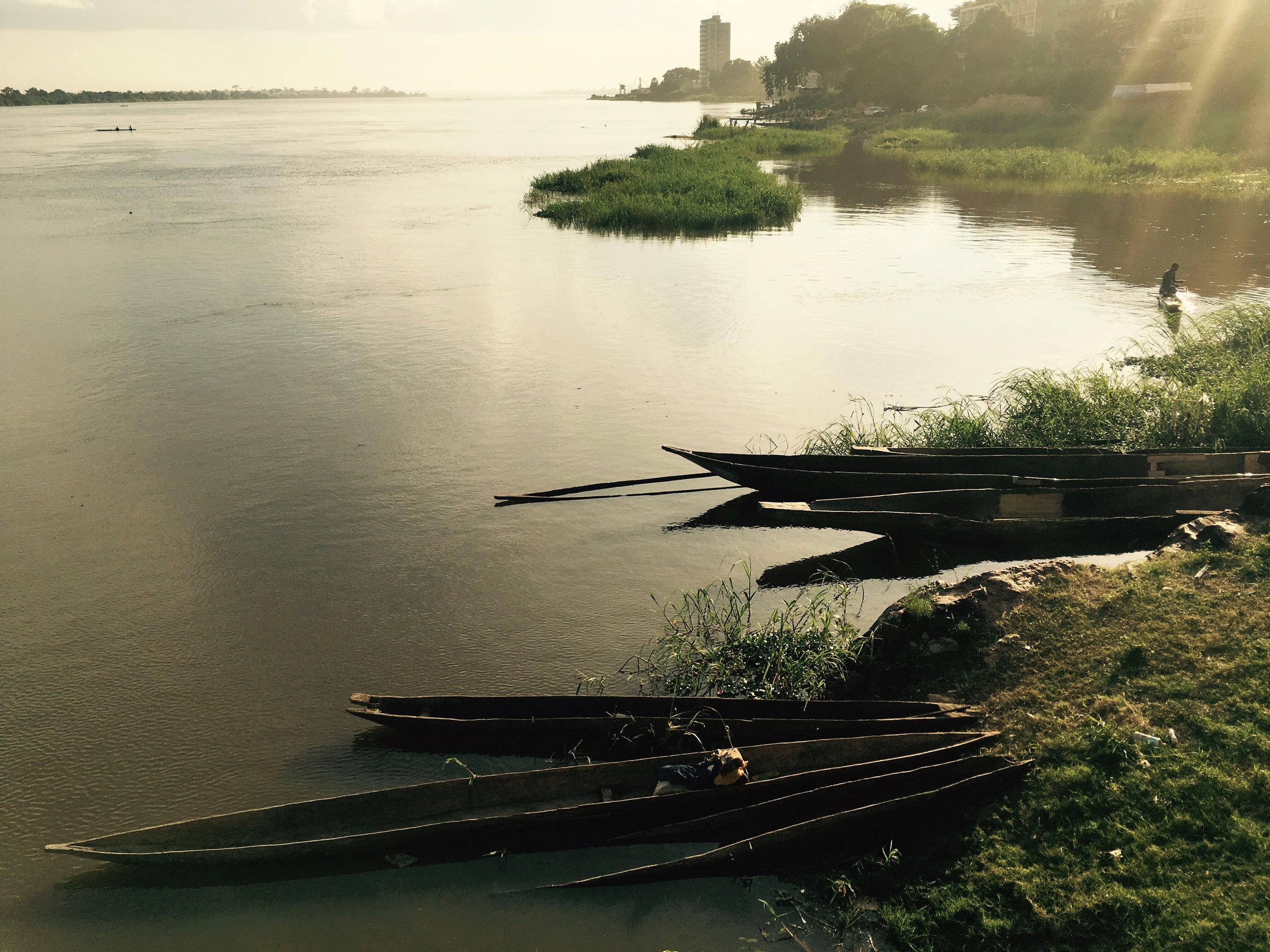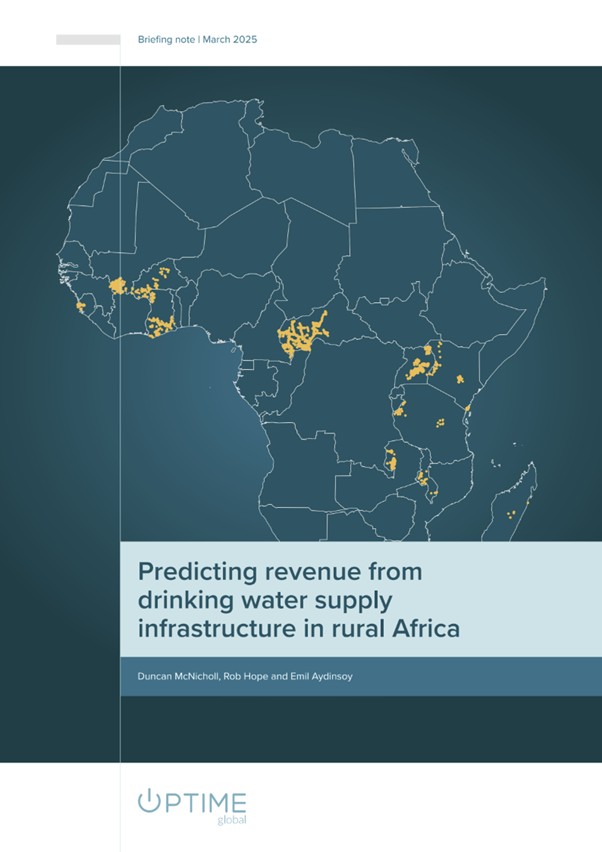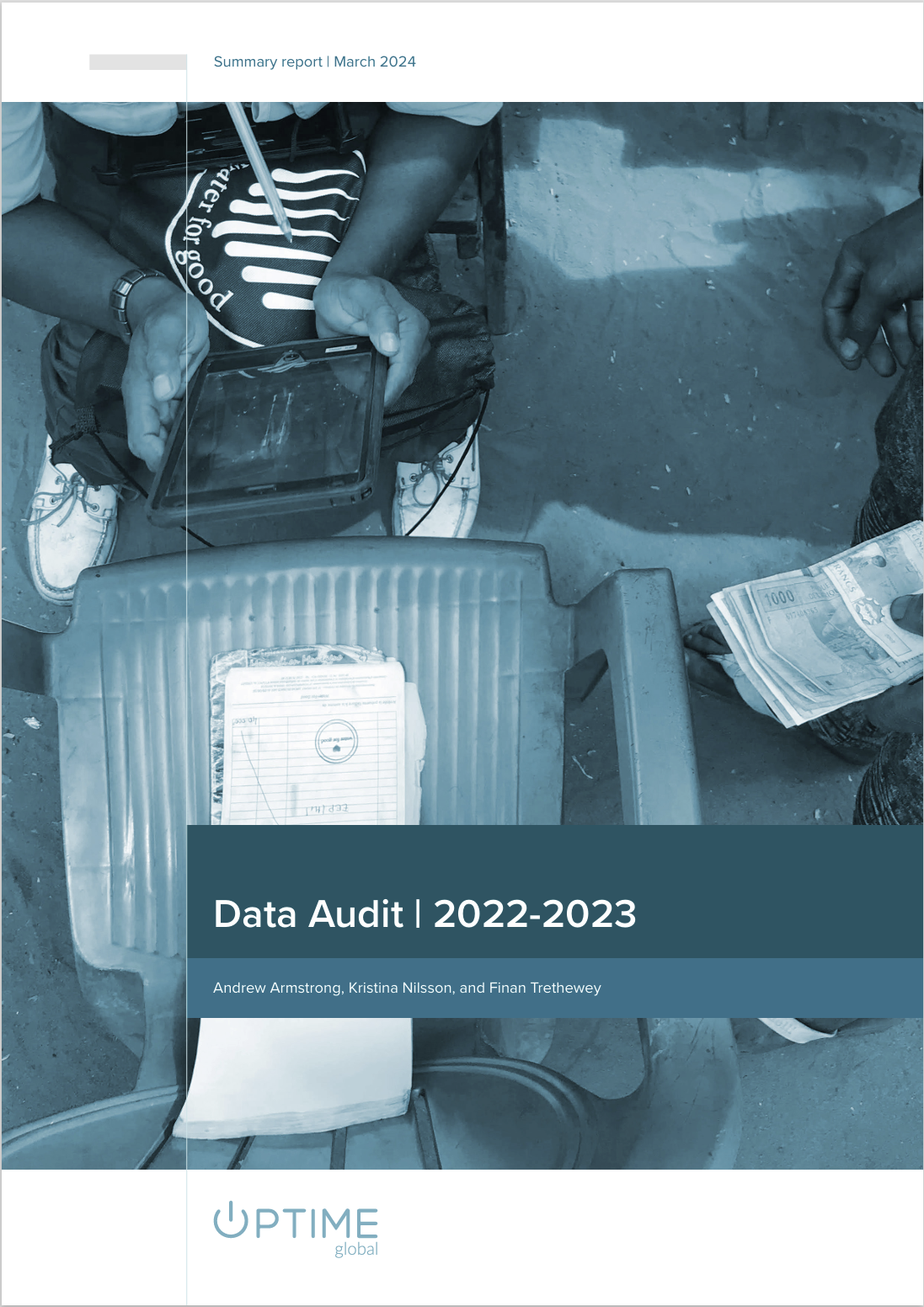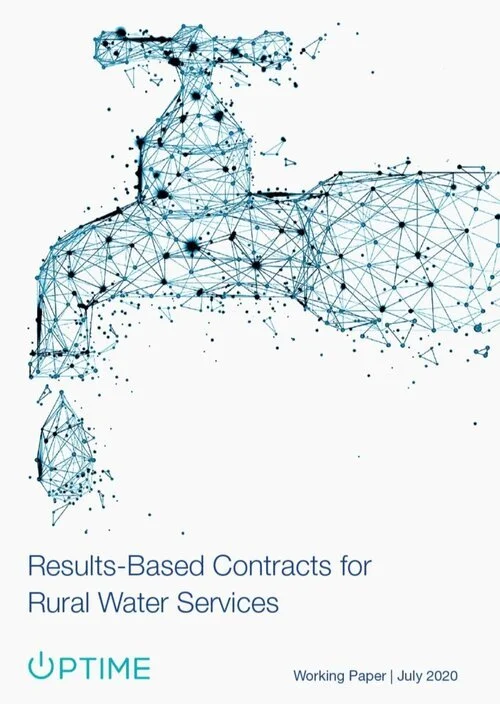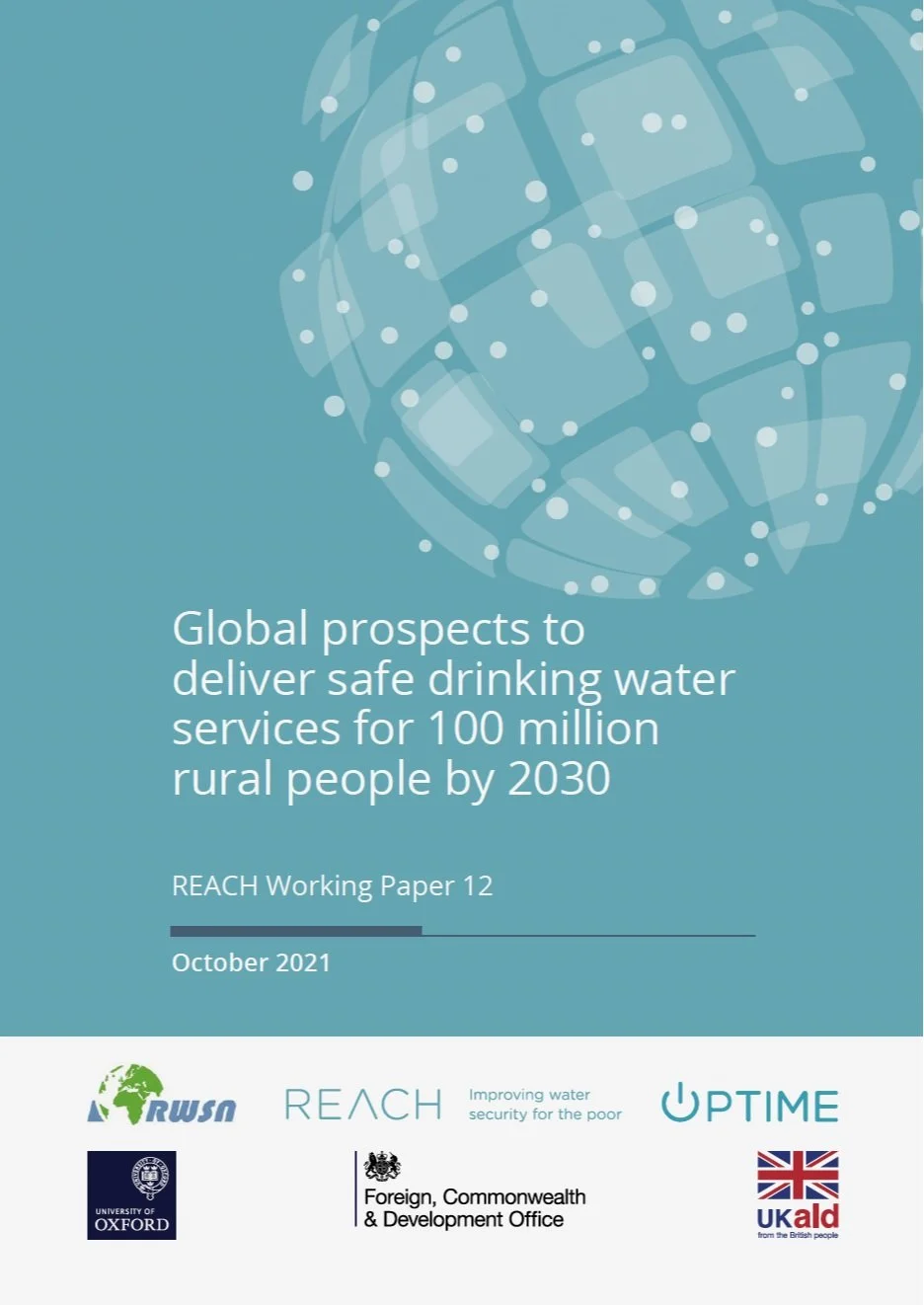RURAL DRINKING WATER SUSTAINABILITY IN KARNATAKA
This policy briefing outlines how the Government of Karnataka is using a Decision Support System (DSS) to track the operational, financial, and water resource performance of its Multi-Village Schemes.
THE DATA DIVIDEND: STRENGTHENING DATA FOR RESULTS-BASED WATER FUNDING
Our new working paper shares Uptime’s approach to verifying results across 6,000 waterpoints in 16 countries, supporting over $2.5 million in payments for safe drinking water at under $1 per person each year.
Predicting revenue from drinking water supply infrastructure in rural Africa
This briefing note presents Uptime’s model to estimate user payments for rural water. It supports better financial planning using data from 11 countries and over 200,000 months of service records.
RESULTS-BASED FUNDING FOR SAFE DRINKING WATER IN ZAMBIA
This working paper, co-authored with the Government of Zambia and the University of Oxford, explores how results-based funding can improve safe drinking water in Zambia’s public schools and healthcare facilities at national scale.
Data Audit: 2022 - 2023
Our new Summary Report discusses the findings and implications from our 2023 data audit on the performance of rural drinking water services.
Results-based funding for safe drinking water services
Our working paper in partnership with the REACH programme proposes how a standard contract design with payment for results can accelerate safe drinking water services at scale.
Delivering Global Rural Water Services through results-based contracts
Our 2021 working paper describes how we have improved results-based contracts for scale while actively testing them across seven African countries to benefit c. 1.5 million people.
results-based contracts for rural water services
We explore how concessionary funding through results-based contracts for waterpoint reliability, volumetric use, and local revenue generation might enable sustainable rural water services for 100 million people by 2030.
PERFORMANCE-BASED FUNDING FOR RELIABLE RURAL WATER SERVICES IN AFRICA
We assess the financial and operational performance of five maintenance providers serving over one million rural people across four African countries.
Global Studies
Keeping Piped Water Flowing In Rural India
This working paper with the Oxford Smith School Water Programme considers global evidence from Uptime and a random sample of data from 3,400 villages in the state of Maharashtra to consider pathways to keep water flowing.
Cost Estimates for Safe Drinking Water in Schools and Healthcare Centres in Khulna District, Bangladesh
This briefing note with SafePani outlines the expected costs for professional water services for 1700 schools and 300 healthcare centres in rural Bangladesh.
global prospects to deliver safe drinking water services for 100 million rural people by 2030
This collaboration with REACH and the Rural Water Supply Network identifies service providers globally that could participate in scaling up results-based funding.

